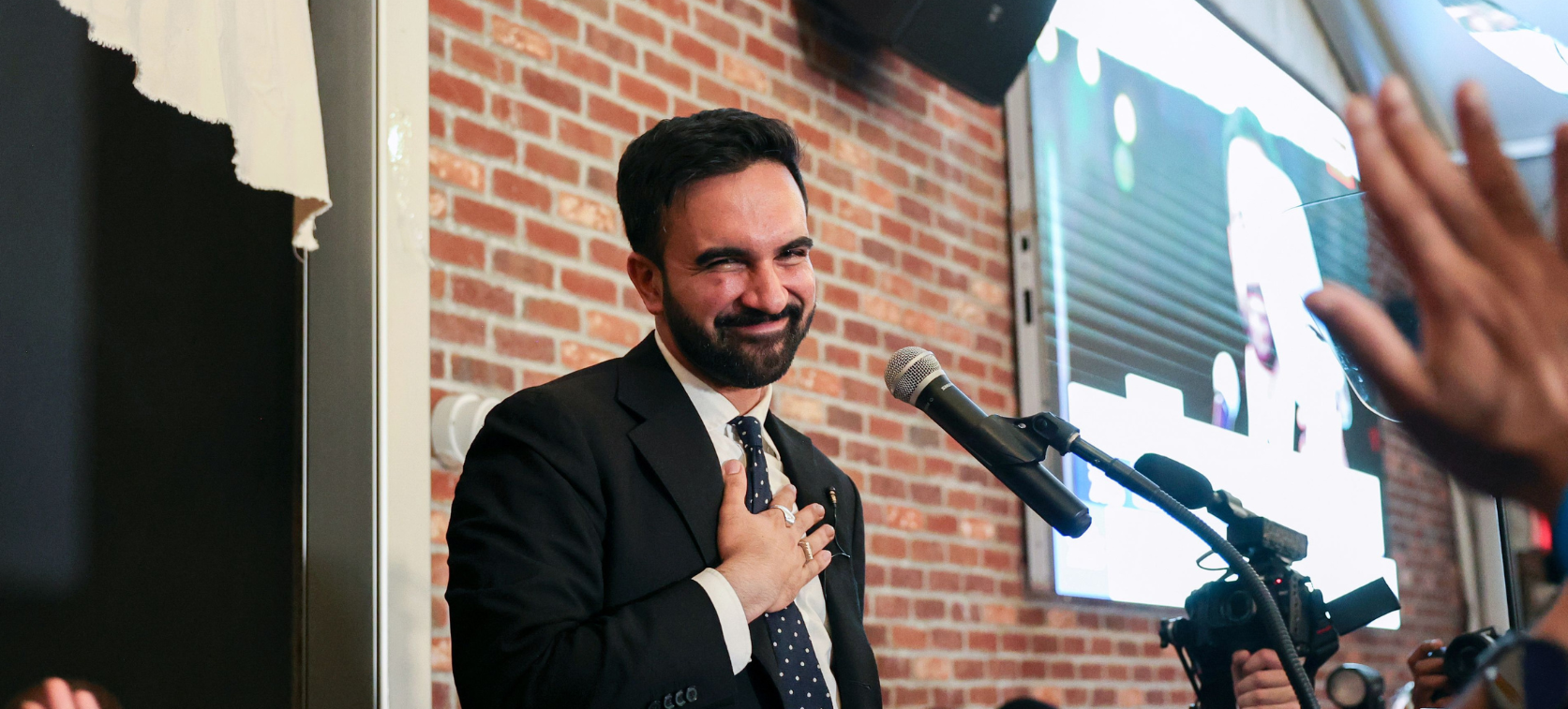When Zohran Mamdani swept to victory in New York’s mayoral elections, his supporters hailed it as a historic triumph, a socialist breakthrough in the beating heart of American capitalism. Yet beneath the slogans of hope and equality lies a deeper truth: Mamdani’s win is not a victory for America. It is a symptom of how fractured the United States has become, a mirror reflecting a society increasingly divided between those who feel abandoned by the system and those who still profit from it.
A predictable uprising from the margins
For all the drama of election night, Mamdani’s success was never improbable. New York City, once a symbol of aspiration and abundance, has been teetering on the poverty line for years. Around 13% of its population, some 2.5 million people, live below the official poverty line, and in neighbourhoods such as the South Bronx, that figure soars to nearly 50%. In a city where the cost of living has become unmanageable and rents devour entire paycheques, resentment toward the so called “big cats” of Wall Street and corporate America has been festering.
This discontent created fertile ground for Mamdani’s populist message. His promises of free public transport, rent freezes, universal childcare and higher corporate taxes spoke directly to the millions who feel that New York’s skyscrapers no longer cast their shadows over opportunity but over exclusion. His victory, then, is less about political transformation than economic exhaustion. When a society’s middle class erodes and its working poor see no way up, populism becomes the most rational rebellion.
A global revolt against the political establishment
What happened in New York is part of a broader, unmistakable trend. From Britain to Pakistan, from Africa to America, a global wave of anti establishment sentiment is reshaping politics.
In Britain, the resurgence of Nigel Farage and his populist appeal is not the product of an ideologically sound vision but of a collapsing economic reality. In a country where wages have stagnated, public services are crumbling, and inflation erodes what remains of the middle class, a bankrupt economy becomes an easy equation for feeding the migrant narrative, a convenient diversion that lets the real elephant in the room, structural economic failure, continue to sleep. Yet while the right wing grows at an accelerated pace, its worldview remains an oversimplified model of the playground: if you must share your food with twenty others, you will have less to eat, so eradicate the others. What it fails to ask is the more fundamental question: why is there so little food in the first place?
In Pakistan, public anger has erupted over cronyism, corruption, and the capture of state institutions by entrenched elites, leaving ordinary citizens struggling under soaring inflation and energy shortages. In Kenya and South Africa, movements decry the capture of public wealth by entrenched political dynasties. Across the democratic world, ordinary citizens are uniting under a single cry: the system no longer works for them.
The politics of expedience
Mamdani, for all his conviction and charisma, has tapped into this global mood. His language of equality resonates in a city where the gap between the rich and poor is now wider than at any time in modern history. But his campaign, like so many before it, risks being another exercise in expedient politics. The Tory Party once fed on the flames of nationalism and nostalgia during Brexit, promising a better, freer Britain if only it severed ties with Brussels. Mamdani’s message of radical equality may be the left’s mirror image of that strategy, an appeal to emotion wrapped in the language of justice.
The underlying crisis is the same. Decades of deregulation, financialisation and political capture have hollowed out the economic contract that once tied labour to prosperity. Whether under right wing populism or left wing idealism, the working class is no longer seeking reform, they are demanding retribution.
Distraction by spectacle
Yet much of the public discourse around Mamdani’s victory risks being derailed by spectacle rather than substance. Many commentators focus on his sharp attacks on Benjamin Netanyahu or his verbal sparring with Donald Trump, portraying the story as a clash of personalities rather than a symptom of deeper systemic fractures. By fixating on the drama of headlines, observers can easily miss the central point: Mamdani’s rise reflects widespread economic desperation, structural inequality, and a global wave of disillusionment with political elites. The risk is that the electorate and even analysts become preoccupied with the theatrical rather than the material, obscuring the real stakes in wealth distribution and the legitimacy of existing institutions.
The illusion of a new dawn
Mamdani’s challenge is greater than free bus and rail services. The greatest challenge is wealth distribution, and as long as the current global system remains capitalism, the question does not remain how wealth is distributed, but when will this system end? America, already fractured along class, racial and ideological lines, faces a deeper reckoning than any municipal administration alone can resolve.
In the end, Zohran Mamdani’s ascent tells us less about the rise of a new America than about the decline of the old one. His victory is not the dawn of change but the dusk of consensus, a warning that when systems fail to share their wealth, even the most glittering city will vote for its own reckoning.
Need Help?
-
[email protected]
-
Follow us on Instagram
-
Follow us on TikTok
